How Zambia Shaped His Identity: Quinn Leach
For the past ten years, North Park University has partnered with Spark Ventures and Hope Community School. Every May, North Park students travel to Ndola to facilitate a 3-day health clinic for the students of Hope School. The clinic is meant to assess and treat malaria, ringworm, intestinal worms, and other common medical conditions the students experience. In addition, NPU students gain a rich cultural education from Hope partners, host families, and Ndola natives. NPU students also spend time instructing in the classroom, alongside Hope School teachers. Quinn Leach, a recent graduate of North Park University, recalls his experience and interaction with Hope School in this blog post. Specifically, the impact the partnership has on providing a “hand-up, not a hand-out”.
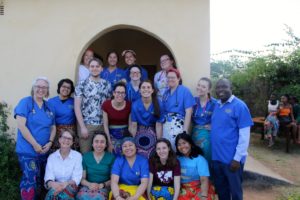
How It All Began…
This past May, I graduated from NPU with a degree in Political Science and Psychology. While at NPU, I got the opportunity to work for their Global Partnerships program. This program coordinates short-term service trips, both international and domestic. It is through this program that the partnership with Hope is facilitated logistically. My first two years working for the program, I went to South Africa. This experience was a deep dive into the historical events and consequences of Apartheid. Both were deeply rich encounters with racial inequality, systemic oppression, human resilience, and creative problem-solving. Guided by our fantastic partner, Zimele Wethu, we witnessed a holistic community development model that led to transformative and impactful change in KwaZulu-Natal.
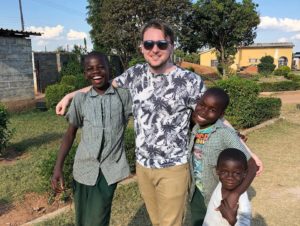 Confronting My Identities…
Confronting My Identities…
These encounters placed me in direct confrontation with both my white and Western identities. In the book, Whistling Vivaldi, author Claude Steele purports that individuals possess a multitude of identities. Our tendency is to most closely identify, at any given time, with the aspect of our identity that is most under threat. Due to the great social power held by both white and Western society, these identities are very rarely placed under threat. Thereby, these identities rarely get developed as strongly as the identities that get developed by non-white, non-Western individuals. The disparate level of identity development often leads to defensiveness on the part of the individuals with less-developed identities, the ultimate enemy of progress. My time in South Africa, a country so explicitly categorized into racial hierarchy, led me to face the reality of my underdeveloped identities in both an African and American context.
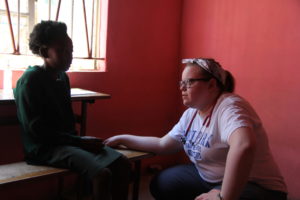 The Start Of Something New…
The Start Of Something New…
The opportunity to go to Zambia was a truly serendipitous affair. My sister, a nurse and North Park alum, was approached to return to Zambia with North Park’s team. She had previously attended the trip as a student in 2016. She was unable to attend the trip for its full duration and, as such, would have had to fly back alone. I decided two months prior to trip departure that I might as well tag along and keep her company. In taking this journey, I re-evaluated my time in South Africa and vowed to continue the pursuit of growth in understanding the privileges inherent with my skin color and the ability to differentiate between the restorative and destructive relationships the White American West has with the African contexts I’ve encountered.
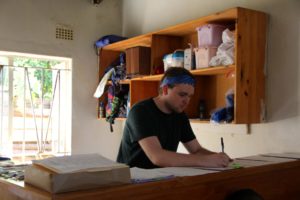
Reflecting On My Impact…
While in Zambia, I reflected upon my role apprehensively. What was I really doing here? Is the impact I’m having positive? Am I interacting in a way that honors the wonderful people I’ve met? I was prompted to engage these thoughts most when I was around the children we interacted with. Many would flock to me, hug me, gawk at me with reverence. Don’t they know I’m just a random American? Why the fuss? The answers to these questions I feared were rooted in neocolonialism and the White Savior Complex. To further complicate this, the team I was with was providing medical care. When I’d traveled to South Africa before, I was nothing but a learner. This time, I felt, there was a further imbalance embedded in my presence. This increased my apprehension. I have no interest in furthering the White Savior Complex, yet, here I was: petrified that I was doing so.
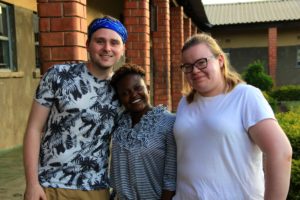 An Inspiring Educator…
An Inspiring Educator…
In a moment of facing these questions, it was Teacher Patricia, a kindergarten teacher at Hope School, that sat with me and shared some of her perspective. “Why were the children so excited to see me?” I asked. The children were so excited to see me because they knew I was excited to see them. They were excited because they knew I traveled a (very) long way just to spend time with them. They were excited to show me their beautiful country, the pride they take in it. They were excited to hear about the US and the context I come from. They were excited to see Americans willing and ecstatic to be hosted by Zambians.
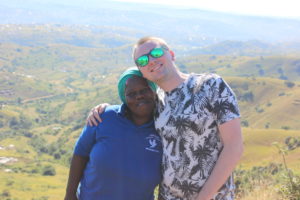 She also said, they are aware of what some Americans think of Africa. Aware of our tendency to write it off as a poor, hopeless continent. They know we lack education about what actually happens in Africa. They are familiar with our ignorance toward how people live in Zambia. Teacher Patricia said they were proud to show us that our biases may be incorrect. Proud to show us that Zambia is a stunning nation with virtues and challenges like any other.
She also said, they are aware of what some Americans think of Africa. Aware of our tendency to write it off as a poor, hopeless continent. They know we lack education about what actually happens in Africa. They are familiar with our ignorance toward how people live in Zambia. Teacher Patricia said they were proud to show us that our biases may be incorrect. Proud to show us that Zambia is a stunning nation with virtues and challenges like any other.
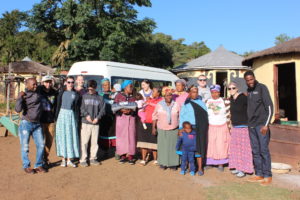 Working As A Team…
Working As A Team…
Confronting my white and Western identity has not been comfortable. One reason for this is because I have often lost hope that the narrative of the White Savior Complex and the West’s condescension toward Africa has left scars too ghastly to heal. But then I remember that the culture that created the problem will likely not invent the solution. It’s people like Teacher Patricia and the passionate kids at Hope School that are onto something. Genuine connection, mutual respect, and centered resilience radiated from everyone I met at Hope. By following their example, my American cohort and I were able to reciprocate these qualities and forge a true partnership. By following the Zambian’s lead, we actualized an African solution to a Western problem. While we provided medical assistance, the Zambians equipped us with something equally profound. They exemplified Right Relationship, sincere hospitality, and humble determination. By incorporating us into their lives so graciously, the Zambians of Hope turned an interaction historically fraught with challenges into a bidirectional exchange of mutual benefit and respect.
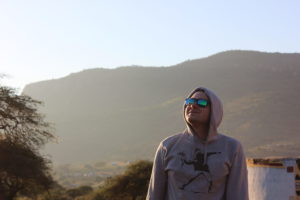 A Path Into Tomorrow…
A Path Into Tomorrow…
I still have not fully grasped the implications of my White and Western identity; it is something for which I always must keep striving toward. Doing so is an imperative to achieving a world in which everyone is valued, where everyone can learn from each other, and where everyone can succeed. No one’s success should be built upon the oppression of another. Through the folks I met in Zambia, I saw a path forward I am excited about. I saw ideas that could be the catalyst for a more just world. Let the relationship between Hope and NPU serve as a powerful reminder: partnership, collaboration, and understanding are potent tools to achieve a tolerant world where everyone can thrive. Restoration is possible and it’s worth it. We just have to put in the work.
If you are interested in learning more about our life-changing upcoming visits, click here!




